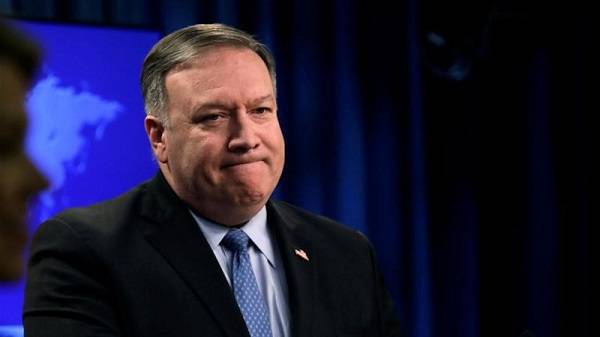US President Donald Trump’s administration decided to hold off on the Israeli-Palestinian peace plan after Israel found itself facing new elections, slated for 17 September, with the resignation of Trump’s adviser on the Middle East, Jason Greenblatt, casting doubt on the fate of the US-led initiative.
US Secretary of State Mike Pompeo has dismissed all speculations of a substantial delay in the announcement of the much-anticipated Israeli-Palestinian peace plan on Friday, saying the United States would present it within weeks.
“We’ve been consulting broadly throughout the region for two and a half years now and I think in the coming weeks we’ll announce our vision,” Pompeo said, according to AFP.
"And hopefully the world... will see that as a building block, a basis on which to move forward," he added, responding to a question at Kansas State University.
Pompeo called peace in the Middle East "a difficult problem, one that ultimately those two peoples will have to resolve for themselves, but we've worked hard on that".
Pompeo’s comments come in the wake of the unexpected resignation on 3 September of US President Donald Trump’s adviser on the Middle East, and one of the key architects of the “deal of the century”, Jason Greenblatt. Greenblatt is an Orthodox Jew from Teaneck, New Jersey, one of the most Jewish communities in the United States, and attended Yeshiva University before obtaining his law degree from NYU.
According to the White House, Greenblatt had originally intended to serve in his capacity of special envoy for two years, but stayed on longer due to the procrastination over the roll-out of the peace plan.
On Thursday Greenblatt, a father of six, cited personal reasons in leaving, and said he was "incredibly grateful to have been part of a team that drafted a vision for peace”, as he added he was looking forward to returning to New Jersey with his family.
President Trump's Jewish son-in-law Jared Kushner, his aide Avi Berkowitz (who once studied at an Orthodox seminary in Jerusalem) and US Ambassador to Israel David Friedman will continue to work on the US peace plan.
‘Deal of the Century’ pushed back
Earlier, on 18 August, Donald Trump said he would likely wait until after Israel's 17 September elections to release the peace plan.
“I probably will wait, but we may put out pieces of it,” Trump said, adding that “peace between the Israelis and the Palestinians” is the “toughest deal of all.”
US President Donald Trump’s Middle East peace plan was originally set to be unveiled over the summer, but was delayed when the Israeli prime minister Benjamin Netanyahu failed to form a coalition following the April election and called a fresh vote.
In June, the White House revealed details of the economic portion of the proposed plan, offering a $50 billion investment initiative that would establish a global investment fund to boost the Palestinian and neighbouring Arab states' economies, as well as to finance a $5 billion dollar transportation corridor linking the West Bank and the Gaza Strip.
While Tel Aviv has welcomed the plan, the Palestinian side has repeatedly stated that it refuses to consider the US administration an honest broker for negotiations since President Trump’s declaration recognising Jerusalem as Israel’s capital in late 2017 and relocation of the US embassy to the city.
The Palestinian Authority (PA), which views Jerusalem as the capital of a future Palestinian state, has also claimed the US Middle East peace plan is biased in Israel’s favour.






